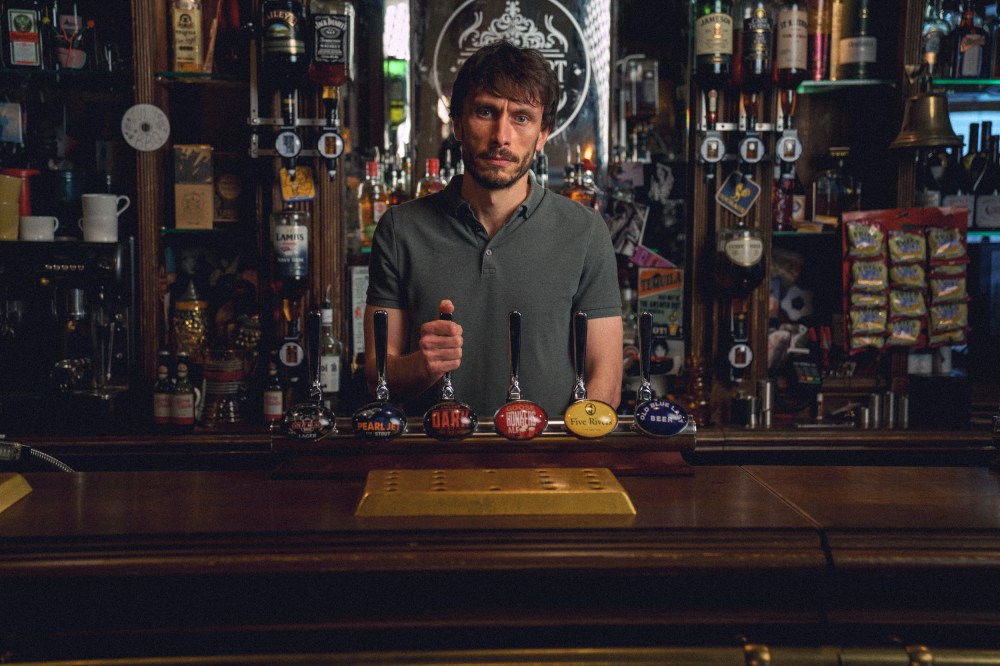Netflix’s new hit show “Baby Reindeer,” a drama based on a true story, written and created by stand-up comedian Richard Gadd, adeptly explores how desire and intimacy’s relationship to shame becomes more deeply entrenched and harder to disentangle for those who have survived sexual abuse and other traumas.
Over the seven episodes, “Baby Reindeer” (the reason for the name isn’t revealed until the end) lays bare the profoundly complex nature of abuse and oppression.
In real life, Gadd not only was stalked by a woman for four years — Variety counts “41,071 emails, 350 hours of voicemail, 744 tweets, 46 Facebook messages and 106 pages of letters” — but he also says he was sexually abused by a man. In the show, that character is depicted as a powerful entertainment industry insider, who preys on and grooms the main character. Over the seven episodes, “Baby Reindeer” (the reason for the name isn’t revealed until the end) lays bare the profoundly complex nature of abuse and oppression; we learn how the storyteller’s abuses and his vulnerability as a survivor are all connected.
By cultivating an ebb and flow of empathy and disgust for all its characters, “Baby Reindeer” asks, “Who in this world hasn’t been victimized?” It intends for us to include abusers in that question.
In exploring the mutual obsession between the stalked, Donny (Gadd) — a bartender and struggling comic — and his stalker, Martha (Jessica Gunning), and the ways in which Donny’s life unravels after being separately raped and then stalked, the show questions how much autonomy people, survivors especially, have over our own desires, when trauma is left unprocessed. And how unprocessed trauma binds us to our abusers.

After being sexually abused and raped, before meeting Martha, Donny pursues psychologically damaging and physically unsafe sexual encounters, because, as he notes in a voiceover, he hopes that by “choosing” to place himself in sexually violating situations, the initial violation he experienced will feel less like one. He begins compulsively watching gay male porn (when he previously identified as straight) and then, later, fantasizing about his stalker.
Donny, like so many survivors of abuse and trauma, keeps trying to make sense of how he “allowed” the abuse to repeatedly happen. It’s as though his abuser created a vacuum inside him that later gets filled by Martha. “You see, that’s what abuse does to you, ya know? It made me this sticking plaster for life’s weirdos,” he says near the end. “This open wound for them to sniff at.” Though Donny, so dripping in shame, is partially frightened of and even disgusted by Martha, he struggles to put an end to their encounters. Many of us, much like Donny, would rather accept dysfunctional connections than be on our own, when given the choice.
There’s a potent metaphor in the series for the way we suppress our own authenticity in exchange for connection.
There’s a potent metaphor in the series for the way we suppress our own authenticity in exchange for connection. Donny, given a bright yellow jacket by his landlady, does not want to wear it. It doesn’t feel like him, but still he puts it on. It belonged to her dead son, and Donny doesn’t want to offend her, but in wearing the jacket, he allows himself to be figuratively subsumed by someone else’s skin. He hides who he is in multifarious ways. He falls in love with a transgender woman, for instance, but he sabotages that relationship out of fear of how he’ll be perceived by others.













